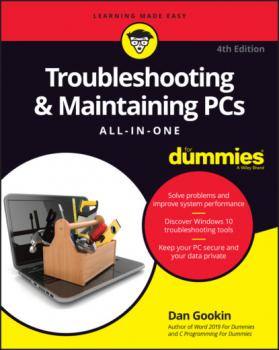John Wiley & Sons Limited
Все книги издательства John Wiley & Sons LimitedHealth Communication Theory
Assembles the most important theories in the field of health communication in one comprehensive volume, designed for students and practitioners alike Health Communication Theory is the first book to bring together the theoretical frameworks used in the study and practice of creating, sending, and receiving messages relating to health processes and health care delivery. This timely volume provides easy access to the key theoretical foundations on which health communication theory and practice are based. Students and future practitioners are taught how to design theoretically-grounded research, interventions, and campaigns, while established scholars are presented with new and developing theoretical frameworks to apply to their work. Divided into three parts, the volume first provides a summary and history of the field, followed by an overview of the essential theories and concepts of health communication, such as Problematic Integration Theory and the Cultural Variance Model. Part Two focuses on interpersonal communication and family interaction theories, provider-patient interaction frameworks, and public relations and organizational theories. The final part of the volume centers on theories relevant to information processing and cognition, affective impact, behavior, message effects, and socio-psychology and sociology. Edited by two internationally-recognized experts with extensive editorial and scholarly experience, this first-of-its-kind volume: Provides original chapters written by a group of global scholars working in health communication theory Covers theories unique to interpersonal and organizational contexts, and to health campaigns and media issues Emphasizes the interdisciplinary and collaborative nature of health communication research Includes overviews of basic health communication theory and application Features commentary on future directions in health communication theory Health Communication Theory is an indispensable resource for advanced undergraduate and graduate students studying health communication, and for both new and established scholars looking to familiarize themselves with the area of study or seeking a new theoretical frameworks for their research and practice.
American Political Thought
How do Americans think about foundational political questions? Covering the full span of U.S. history, <i>American Political Thought: An Invitation</i> offers a lively yet sophisticated overview of the nature and dynamics of American Political Thought for students and general readers alike. <br /><br />Award-winning scholar Ken Kersch’s engaging introduction situates the key debates in their historical, political and cultural context. He introduces the touchstone frameworks and ideas that are both deeply ingrained and yet have been actively re-made in a country that has spent 250 years of shifting circumstances battling over their real-world implications. Covering thinkers ranging from Jefferson to Rawls, Du Bois to Audre Lorde, he examines the ambiguities of the purportedly ‘consensus’ American principles of liberty, equality, and democracy as well as addressing questions ranging from ‘What are the foundations of a legitimate political order?’ and ‘What is the appropriate role of government?’ to ‘What are the appropriate terms of full civic membership ?’ – and beyond. <br /><br />Politically balanced and inclusive, <i>American Political Thought</i> introduces the contested terrain concerning these core political questions as they were raised over the course of the USA’s often dramatic history.
Planning and Executing Credible Experiments
Covers experiment planning, execution, analysis, and reporting This single-source resource guides readers in planning and conducting credible experiments for engineering, science, industrial processes, agriculture, and business. The text takes experimenters all the way through conducting a high-impact experiment, from initial conception, through execution of the experiment, to a defensible final report. It prepares the reader to anticipate the choices faced during each stage. Filled with real-world examples from engineering science and industry, Planning and Executing Credible Experiments: A Guidebook for Engineering, Science, Industrial Processes, Agriculture, and Business offers chapters that challenge experimenters at each stage of planning and execution and emphasizes uncertainty analysis as a design tool in addition to its role for reporting results. Tested over decades at Stanford University and internationally, the text employs two powerful, free, open-source software tools: GOSSET to optimize experiment design, and R for statistical computing and graphics. A website accompanies the text, providing additional resources and software downloads. A comprehensive guide to experiment planning, execution, and analysis Leads from initial conception, through the experiment’s launch, to final report Prepares the reader to anticipate the choices faced throughout an experiment Hones the motivating question Employs principles and techniques from Design of Experiments (DoE) Selects experiment designs to obtain the most information from fewer experimental runs Offers chapters that propose questions that an experimenter will need to ask and answer during each stage of planning and execution Demonstrates how uncertainty analysis guides and strengthens each stage Includes examples from real-life industrial experiments Accompanied by a website hosting open-source software Planning and Executing Credible Experiments is an excellent resource for graduates and senior undergraduates—as well as professionals—across a wide variety of engineering disciplines.









